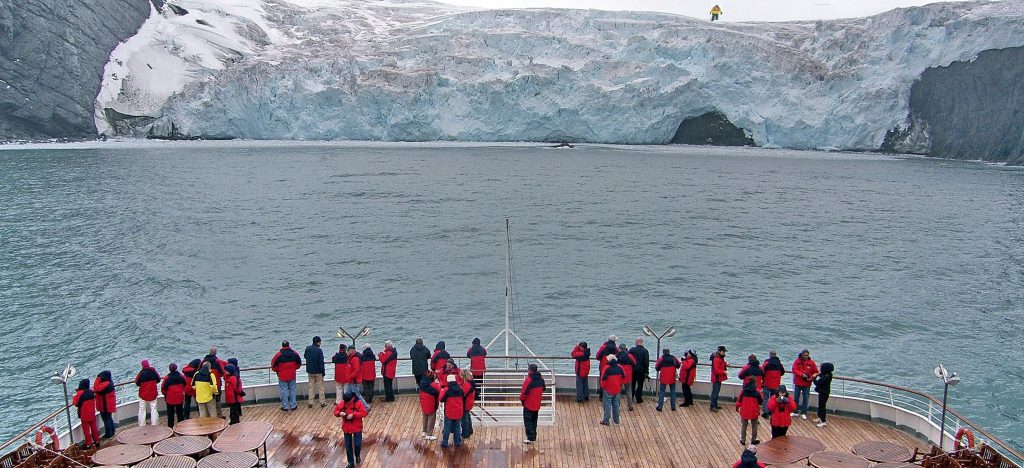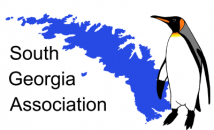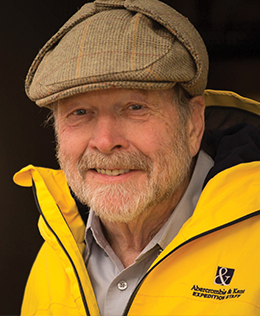It is with great sadness, that the South Georgia Association announces the passing of our wonderful colleague and friend, Bob Burton. He was a founding member of the SGA, serving on the committee for over 20 years from its inception until his death on 15 January 2022.
Bob was a generous, immensely knowledgeable person; full of vitality and ever ready to engage you in his activities involving the environment, heritage, wildlife, conservation and the South Atlantic region, to which he contributed in many diverse ways. He always made time to help anybody with his knowledge of places, wildlife, and history. If he could not help, he would usually point you at the expert who could. An information magpie, he would gather histories, photographs and documents, share them willingly, and thus contribute to the benefit of all.
In his ‘pre-South Georgia’ life, he graduated in Zoology from Cambridge University before studying grey seals in the Outer Hebrides.
He first visited South Georgia in 1964 during a posting to Signy Island in the South Orkneys. Soon afterwards, in 1971-72, he was part of the team initiating a new programme of research on fur seals and albatrosses at Bird Island. Afterwards he was to travel widely, including to the Arctic and across deserts.
Bob was involved in the South Georgia Museum at an early stage, becoming its Director in 1994. During his four-year tenure, the Norwegian Church at Grytviken was fully restored. With little in the way of resources, his important work consolidated that started by others such as Nigel Bonner and Ian Hart. In the late 1990s he organised and coordinated a three-month restoration project of the cemeteries in the Stromness Bay whaling stations.
He had a wonderful gift of communication: As a writer, he edited and wrote extensively about South Georgia, including the South Georgia Government booklet for visitors, and ‘A Field Guide to the Wildlife of South Georgia’. He contributed several essays to the ‘Dictionary of Falklands Biography’, including the one on Sir Ernest Shackleton, about whom he was an expert. And of course, he wrote, collated and edited the SGA’s own newsletter for many years. A mark of his breadth of interest beyond the polar sphere is that he also wrote accessible books on wider nature, including popular guides to garden birds. He contributed to a number of publications including the Daily Telegraph’s ‘Nature Notes’ series, and contributed to many encyclopaedias. There is not room here to even start to list the books that he wrote.
More recently, he was passionately involved in the archaeological investigations in South Georgia and the continuing conservation of its heritage. His wide interest in more than the mainstream aspects of the island’s history, such as Shackleton and whaling stations, placed him in an excellent position for this. As well as masterminding the recent Cambridge University expedition to investigate the island’s sealing sites, he has researched a plethora of minor finds such as the Zenker Ridge stone hut remains, a stone circle in Bore Valley, Hudson’s beacons in the approaches to Grytviken (set up by Shackleton’s team as an aid to calibrating ships’ compasses), and the historic huts. It seemed he could not sit still without investigating and publishing another interesting paper. This wide and deep interest made Bob a valuable member of the South Georgia Government’s Heritage Advisory Panel.
As a presenter, he was able to capture your attention with his stories, anecdotes, and vast knowledge. He was a regular expedition guide and lecturer on cruise ships, where his gentle and genial demeanour earned him the sobriquet ‘Lord Burton’ among staff. During the pandemic, he was one of the main contributors to the SGA’s online talks helping us reach out to a global audience.
Two placenames have been dedicated to him. In 1977 Burton Cove on the southwestern corner of Bird Island was named after him, and just recently the Burton Glacier on Elephant Island, where Shackleton’s party of 22 awaited his rescue attempts; how fitting that he should be associated with such a historic place.

In 1996, Bob was awarded the Polar Medal for services as Meteorologist, Biological Assistant and Museum Curator and in 2018, he received the SGA’s Morag Husband Campbell Medal ‘for outstanding contributions to the study and conservation of wildlife and the heritage of South Georgia’. He said of the award:
“I am lucky to have been one of many people involved with South Georgia – putting it on the map, so to speak – in recent years. When I first visited the island in 1964, it was Terra Incognita to most people. Nowadays, it has become familiar through television programmes about its spectacular and profuse wildlife, and through the interest in the explorer Ernest Shackleton. Now, its importance in global ecology is being recognised.”
South Georgia has lost a wonderful advocate, and we have lost a kind, enthusiastic, passionate friend. We will miss him.
There is an obituary in the Daily Telegraph, sadly behind a paywall:

